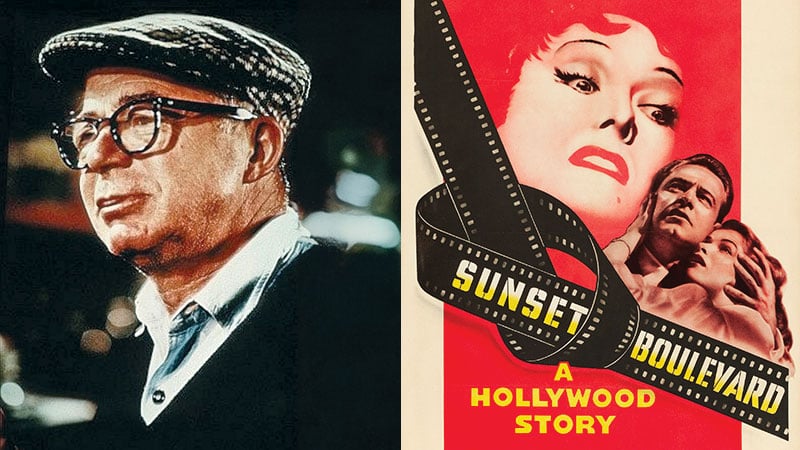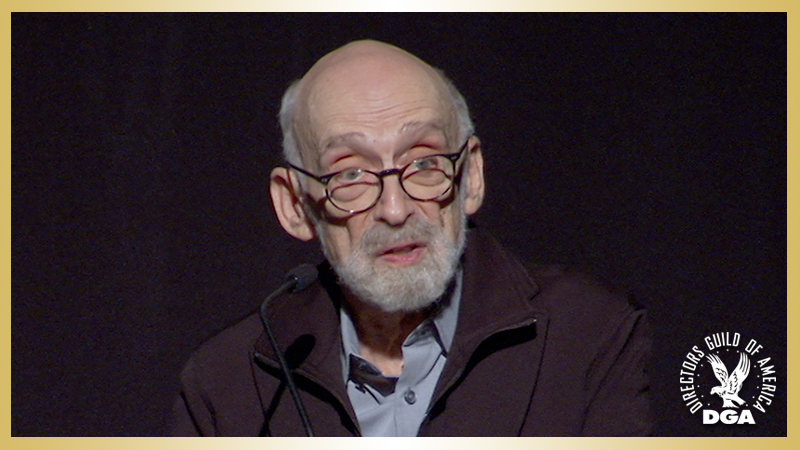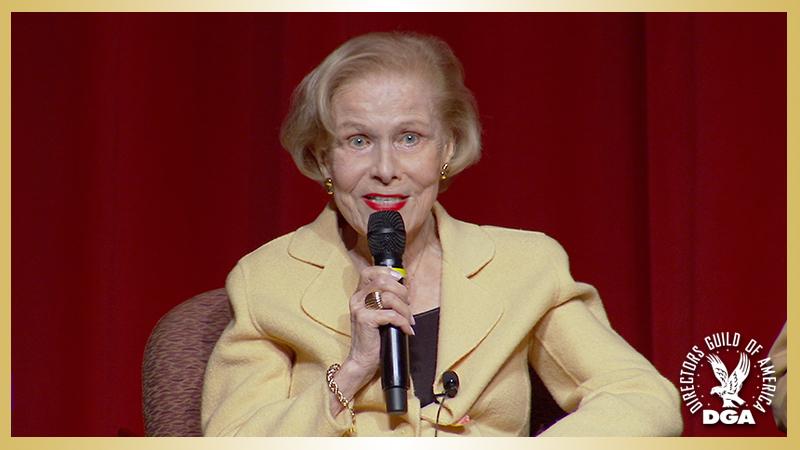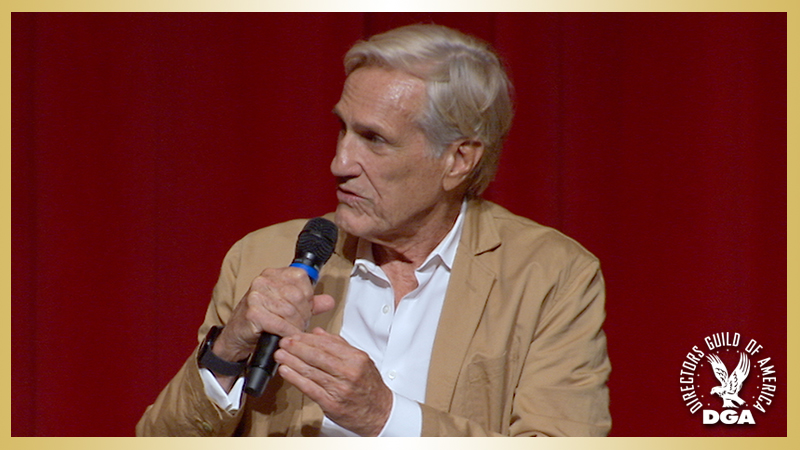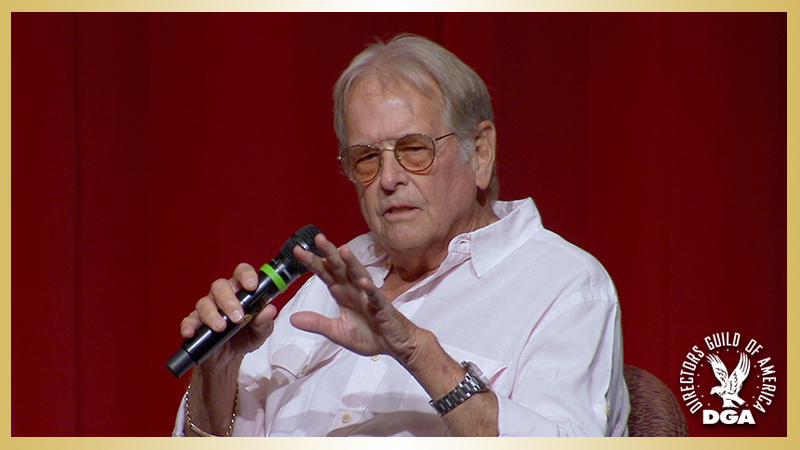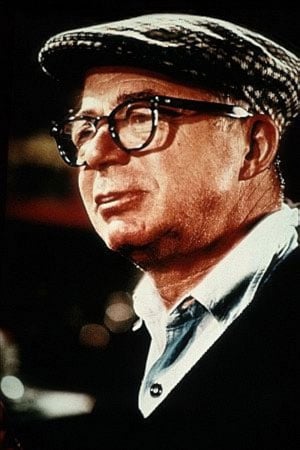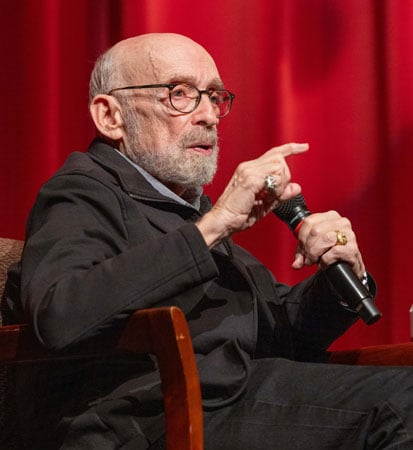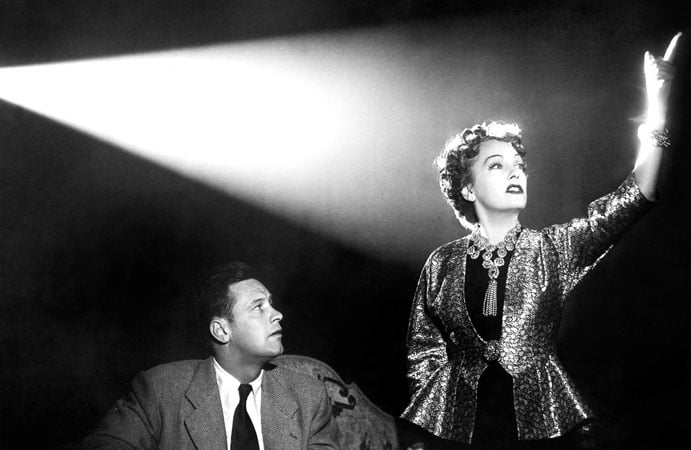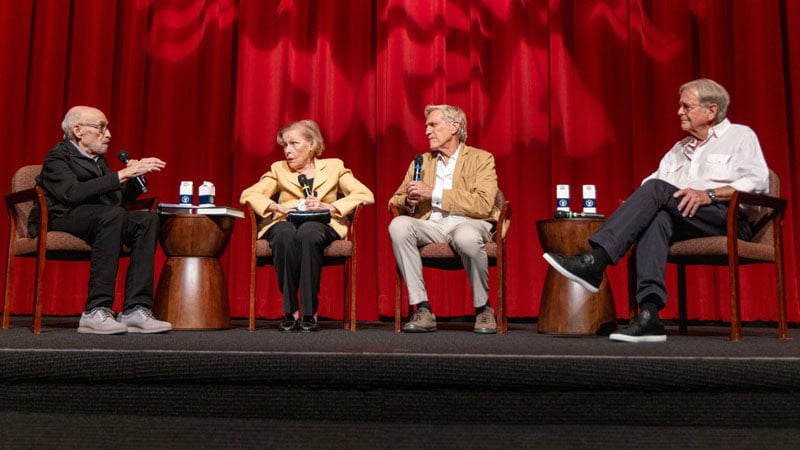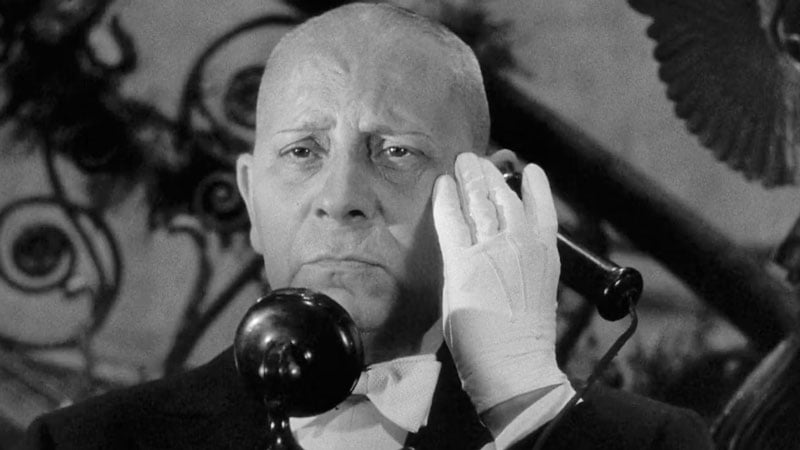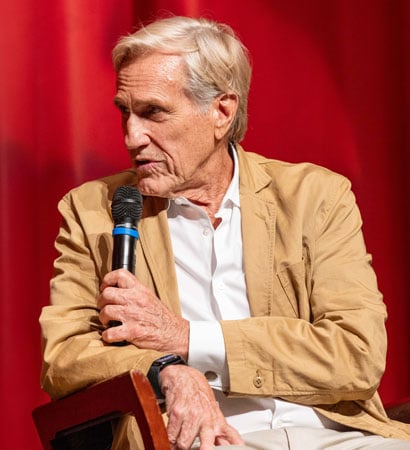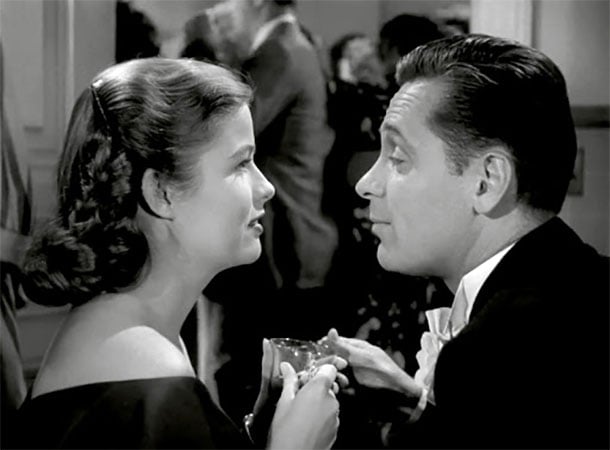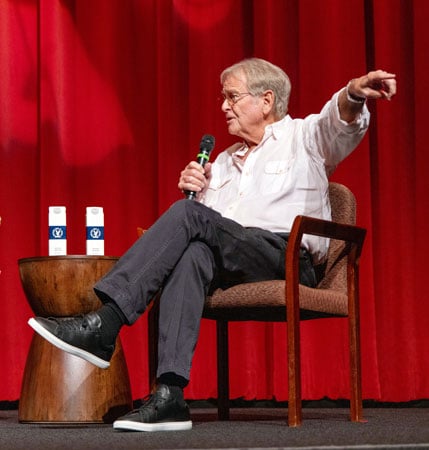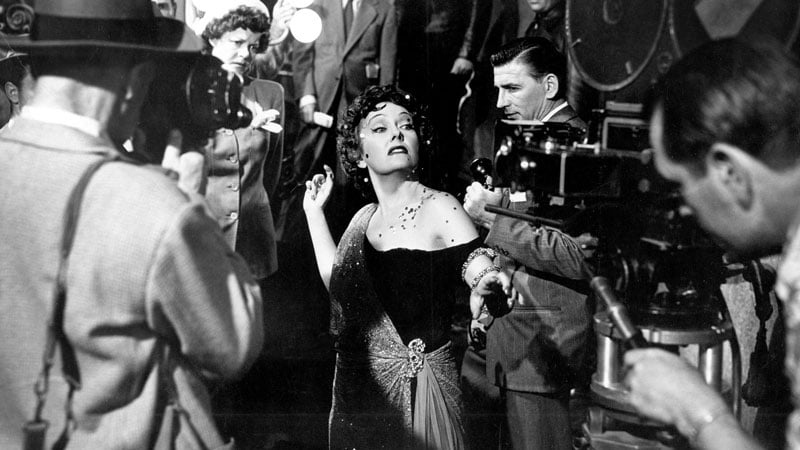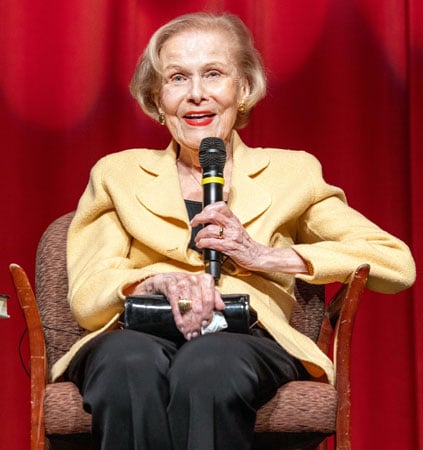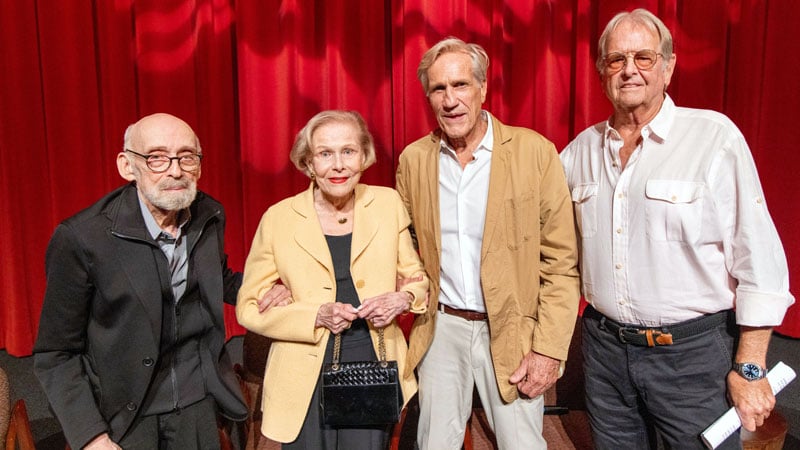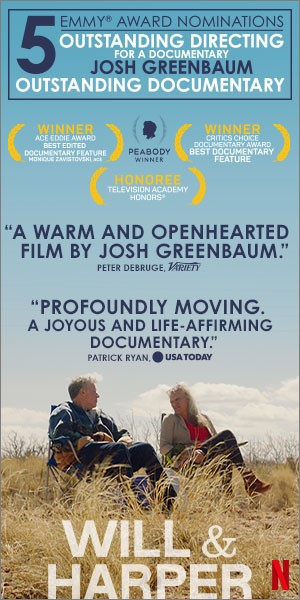On September 9, the Special Projects Committee hosted the second installment of their Classic Films Series with a screening of Billy Wilder’s DGA Award-nominated 1950 feature, Sunset Boulevard. The series screens iconic movies, followed by a discussion about the Director’s contribution to the world of cinema.
“Tonight, we celebrate the genius of one of our most distinguished colleagues, Billy Wilder, as we watch one of his crowning achievements,” said Special Projects Classic Film Series Subcommittee Chair Arthur Allan Seidelman in his welcome. “As a German immigrant, Wilder’s talent was seasoned with an outsider’s precious gift of objective observation. He viewed American society — and in Sunset Boulevard, film industry society, — with a piercing, unclouded eye. Add to that, Wilder’s natural defiance of authority, most probably as a result of his observation of Germany’s descent into fascism. The result was Wilder was an artist unafraid, unafraid to criticize the industry in which he worked or the place he called home, Hollywood.”
Following the screening in the Guild’s Los Angeles Theater, Seidelman moderated a discussion where Directors Randal Kleiser and Michel Zinberg — who were influenced by Wilder’s work — and actress Nancy Olson — who appeared in the film — discussed his lasting legacy on cinema.
Acknowledging how his response to Sunset Boulevard has changed over the years, Kleiser noted, “One of the things that I notice is the performance of Gloria Swanson seems today at times to be a little over-the-top. And I think it’s because she was the original, and there’s been so many people doing take-offs on it that it feels like it’s bigger than life!”
Reading an excerpt from the book he’s writing titled A Director’s Invaluable Collection of Notes to Self, Zinberg shared what Wilder said to him about directing both comedy and drama. “There is little difference. Both are about human behavior. Drama is about what people want and how they get it or not. If on the way they get hit in the face with a cream pie, it’s also comedy.”
Olson spoke to the deeper meanings behind the film and said, “The essence of what really creates a work of art is that it reveals the truth. And what Sunset Boulevard does, it tells you about the truth of moviemaking; movie stars.”
See video from this conversation in the gallery below.
About Billy Wilder
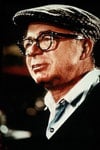 Born Samuel Wilder on June 22, 1906 in Sucha, Galicia, Austria-Hungary, Billy Wilder is regarded as one of the most brilliant and versatile filmmakers of the Hollywood Golden Age of cinema. Originally planning to become a lawyer, he abandoned that career in favor of working as a reporter for a Viennese newspaper before breaking into films as a screenwriter for German films in 1929. When Hitler came to power in 1933, Wilder emigrated to Paris, then to the US. Although he spoke no English when he arrived in Hollywood, he was a fast learner and he and his writing partner Charles Brackett were responsible for scripting classic comedies, including Ernst Lubitsch’s Ninotchka (1939) and Howard Hawks' Ball of Fire (1941). Wilder began directing American films in 1942 with The Major and the Minor and would go on to helm other classics including Five Graves to Cairo (1943), Double Indemnity (1944) and The Lost Weekend (1945). His 1950 feature, Sunset Boulevard, would earn Wilder the first of his eight DGA Award nominations that included Stalag 17 (1953), Sabrina (1954), The Seven Year Itch (1955), Love in the Afternoon (1957), Witness for the Prosecution (1957) and Some Like It Hot (1959). He would win the DGA Award for Outstanding Directorial Achievement in Motion Pictures for his 1960 feature, The Apartment.
Born Samuel Wilder on June 22, 1906 in Sucha, Galicia, Austria-Hungary, Billy Wilder is regarded as one of the most brilliant and versatile filmmakers of the Hollywood Golden Age of cinema. Originally planning to become a lawyer, he abandoned that career in favor of working as a reporter for a Viennese newspaper before breaking into films as a screenwriter for German films in 1929. When Hitler came to power in 1933, Wilder emigrated to Paris, then to the US. Although he spoke no English when he arrived in Hollywood, he was a fast learner and he and his writing partner Charles Brackett were responsible for scripting classic comedies, including Ernst Lubitsch’s Ninotchka (1939) and Howard Hawks' Ball of Fire (1941). Wilder began directing American films in 1942 with The Major and the Minor and would go on to helm other classics including Five Graves to Cairo (1943), Double Indemnity (1944) and The Lost Weekend (1945). His 1950 feature, Sunset Boulevard, would earn Wilder the first of his eight DGA Award nominations that included Stalag 17 (1953), Sabrina (1954), The Seven Year Itch (1955), Love in the Afternoon (1957), Witness for the Prosecution (1957) and Some Like It Hot (1959). He would win the DGA Award for Outstanding Directorial Achievement in Motion Pictures for his 1960 feature, The Apartment.
A DGA member since 1943, Wilder was elected to two terms on the Guild’s National Board from 1946-48 and served five terms on the Western Directors Council from 1961-78. In 1991, he was presented with the DGA’s Preston Sturges Award for outstanding achievements in both writing and directing, and in 1985, Wilder became the recipient of the DGA’s Lifetime Achievement in Feature Film.
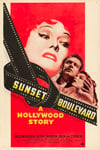 About Sunset Boulevard
About Sunset Boulevard
An aging silent film queen refuses to accept that her stardom has ended. She hires a young screenwriter to help set up her movie comeback. The screenwriter believes he can manipulate her, but he soon finds out he is wrong.
Sunset Boulevard earned Wilder the first of his eight DGA Award nominations, an Academy Award nomination for “Best Director” and is widely considered to be one of the greatest films of all time. In 1989, it was one of the first 25 films selected by the Library of Congress for preservation in the United States National Film Registry for being “culturally, historically, or aesthetically significant.”
